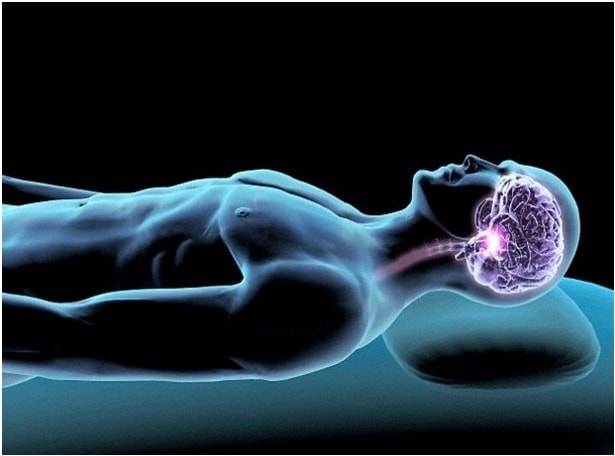The phenomenon of sleep paralysis is a state that occurs during sleep, where you are conscious but unable to move or speak. This is a fairly common experience and is often accompanied by feelings of anxiety, pressure, or even fear.
Mechanism
Sleep paralysis happens during the REM (Rapid Eye Movement) stage of sleep, when the body is deeply relaxed to prevent you from acting out your dreams. If you wake up while your body is still in this state, you will be aware of your surroundings but unable to move or react.
Common symptoms
- Inability to move: The whole body feels paralyzed, and you cannot lift your arms, legs, or speak.
- Feeling of pressure: Many people describe a sensation of being weighed down on the chest or body.
- Hallucinations: Some people experience strange images or sounds, such as seeing figures or hearing noises.
Causes
- Sleep deprivation or irregular sleep patterns.
- Stress and anxiety.
- Sleep disorders (like snoring or sleep apnea).
- Sleeping position (lying on your back increases the likelihood of sleep paralysis).
How to prevent it?
- Maintain a consistent sleep schedule: Get enough sleep and go to bed at regular hours.
- Manage stress: Practice exercise, meditation, or relaxation techniques.
- Avoid caffeine and alcohol before bedtime.
- Change sleeping positions: Avoid lying on your back if sleep paralysis happens often.
Sleep paralysis is usually harmless, but if it occurs frequently and causes significant stress, you should consult a doctor.


ARTICLES IN THE SAME CATEGORY
Early at Year’s End, A Word of Gratitude to Those Who Have Shown Us Kindness
Live contentedly, be satisfied with what you have, and maintain an optimistic outlook on life. These are simple yet wise principles.
People constantly chase after desires, but in the end, when they achieve them and look back, they are left feeling empty.
Greed, Gold, and the Spiral of Instability in Human History
Karma in Vietnamese Classical Thought and Lessons from Cambodia Today
Words and the Fortunes of a Lifetime: Why a Few Right Sentences Are Enough for an Entire Life
ARTICLES IN THE SAME GENRE